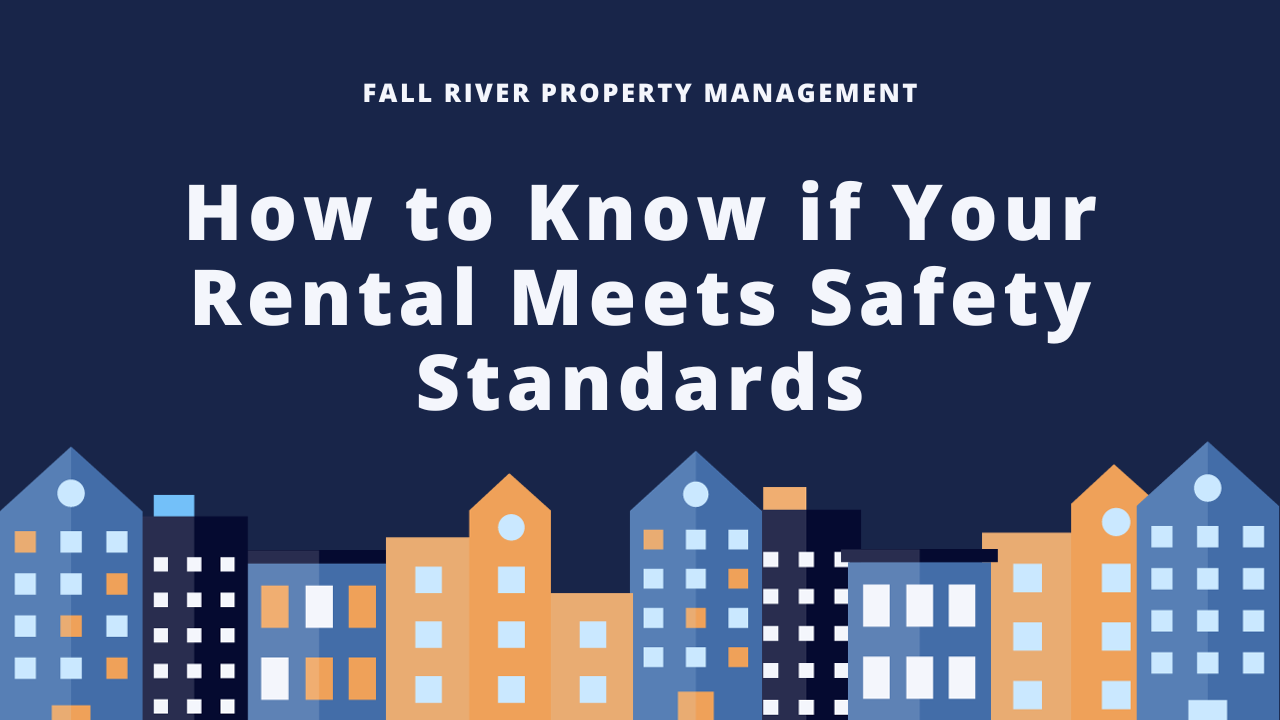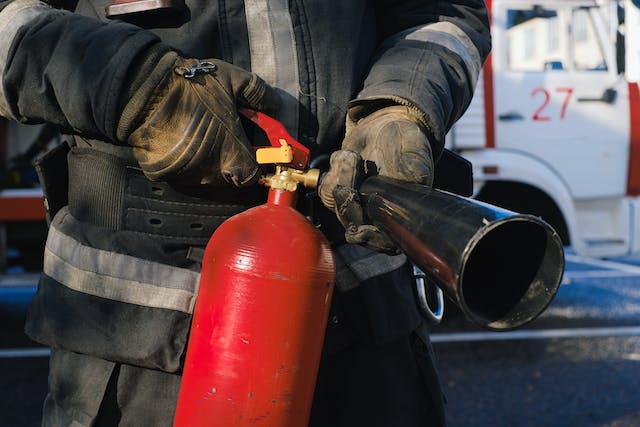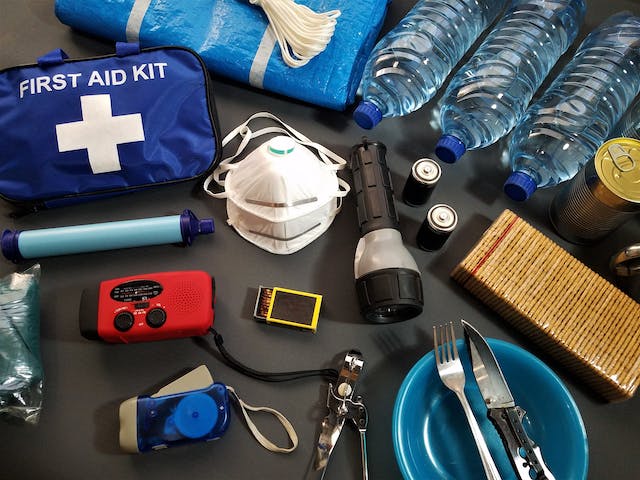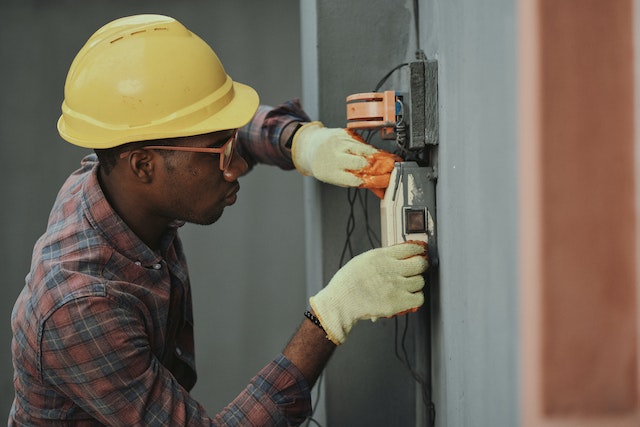I couldn't be happier with Lyndsey and her team. From the initial phone conversation right through to the closing and management they have always been there with sound advice and prompt service. As an out of town investor it is very comforting to know that they are there 24/7 looking after both my investment and my tenants.

As a landlord, ensuring that your rental property meets safety standards is not just a legal requirement—it's a moral obligation to your tenants. Safe housing contributes to the well-being of tenants and protects you from legal liabilities.
In this comprehensive guide we will help you assess whether your rental meets safety standards.
1. Legal Requirements
-
Federal and State Laws: Start by familiarizing yourself with the federal, state, and local housing laws. These laws often outline the minimum standards for rental properties, covering aspects like structural integrity, sanitation, and essential services (ie: water, electricity, and heating).
-
Local Building Codes: Local building codes are specific to your area and provide detailed standards for the construction and maintenance of buildings. These codes ensure that properties are safe, healthy, and accessible.
2. Regular Inspections and Maintenance
-
Professional Inspection: Hire licensed professionals to conduct regular inspections of your property. These inspections should cover electrical systems, plumbing, heating, ventilation, and air conditioning (HVAC) systems, and the structural integrity of the building.
-
Preventive Maintenance: Implement a preventive maintenance plan. Regularly check for leaks, mold, pests, and structural damage. Ensure that all appliances and systems are in good working order.
3. Fire Safety Standards
- Smoke Detectors and Fire Extinguishers: Install smoke detectors in every bedroom and on every floor. Regularly check their functionality. Provide fire extinguishers in easily accessible locations.

- Fire Escape Plans: Ensure that your property has a clear fire escape plan. This includes unobstructed exits and possibly emergency escape windows in bedrooms.
3. Health and Environmental Standards
-
Mold and Pest Control: Address any signs of mold and pest infestations immediately. These can pose significant health risks to tenants.
-
Lead Paint and Asbestos: For older properties, ensure compliance with regulations regarding lead-based paint and asbestos. These substances require professional handling if present.
4. Tenant Safety Education
-
Emergency Contact Information: Provide tenants with emergency contact information and instructions on how to handle various emergencies.
-
Safety Guidelines: Offer guidelines on how to safely use property features (like fireplaces, gas appliances, etc.) and encourage tenants to report any safety concerns immediately.
5. Documentation and Certification Compliance
-
Record-Keeping: Keep detailed records of all inspections, repairs, and maintenance activities. These records can be crucial in case of legal disputes or emergencies.
-
Compliance Certifications: Some jurisdictions require safety certifications for rental properties. Stay updated on these requirements and obtain the necessary certifications.
Additional Safety Considerations
- Accessibility Features: For tenants with disabilities, ensure your property meets accessibility standards, such as wheelchair ramps and grab bars in bathrooms.
- Emergency Preparedness: Equip the property with emergency supplies like flashlights, batteries, and a first-aid kit. Provide information on local emergency shelters and evacuation routes.

- Landscaping and Exterior Safety: Regularly maintain the property's exterior, including walkways, stairs, and lighting, to prevent accidents.
- Locks and Security Systems: Ensure that all exterior doors have sturdy locks. Consider installing a security system or motion-sensor lights for added safety.
Why Landlords Should Ensure Your Property Meets Safety Standards
Ensuring that rental properties meet safety standards is crucial for landlords for several reasons:
-
Legal Compliance: Landlords are legally obligated to ensure their properties meet certain safety standards. Failure to comply can result in fines, legal action, and in severe cases, criminal charges. Adhering to these standards helps avoid legal complications and financial penalties.
-
Tenant Safety and Health: The primary concern should always be the safety and well-being of tenants. Unsafe conditions can lead to accidents, injuries, or health issues. By maintaining a safe environment, landlords help protect their tenants from potential hazards.
-
Tenant Satisfaction and Retention: Tenants are more likely to stay longer in properties where they feel safe and cared for. This reduces tenant turnover, which can be costly and time-consuming for landlords.
-
Property Preservation: Regular maintenance and safety checks help in the early detection and repair of potential issues, thereby preserving the property's value. This is beneficial in the long term, as it helps avoid costly repairs and maintains the property’s market value.

-
Reputation Management: Landlords who maintain safe properties are likely to develop a positive reputation. This can lead to referrals and easier tenant acquisition in the future. On the other hand, neglecting safety standards can harm a landlord's reputation, making it harder to rent or sell properties.
-
Financial Stability: Safe properties are less likely to be the subject of lawsuits or insurance claims, which can be financially draining. By investing in safety, landlords can avoid these unforeseen expenses.
-
Moral and Ethical Obligations: Beyond legal and financial considerations, there is a moral and ethical obligation to ensure that people have a safe place to live. This aspect of social responsibility enhances the quality of life for tenants and contributes to the overall well-being of the community.
Conclusion
Ensuring that your rental property meets safety standards is a continuous process that requires diligence, awareness, and a proactive approach. Regular inspections, adherence to laws and building codes, and open communication with tenants are key to maintaining a safe living environment.
By prioritizing safety, you not only comply with legal requirements but also contribute to the well-being of your tenants and the success of your rental business.
If you cannot do these on your own, it's recommended to work with a reputable property management company that is well-versed in this aspect of property management. Contact Fall River Property Management and we’ll be happy to help you.